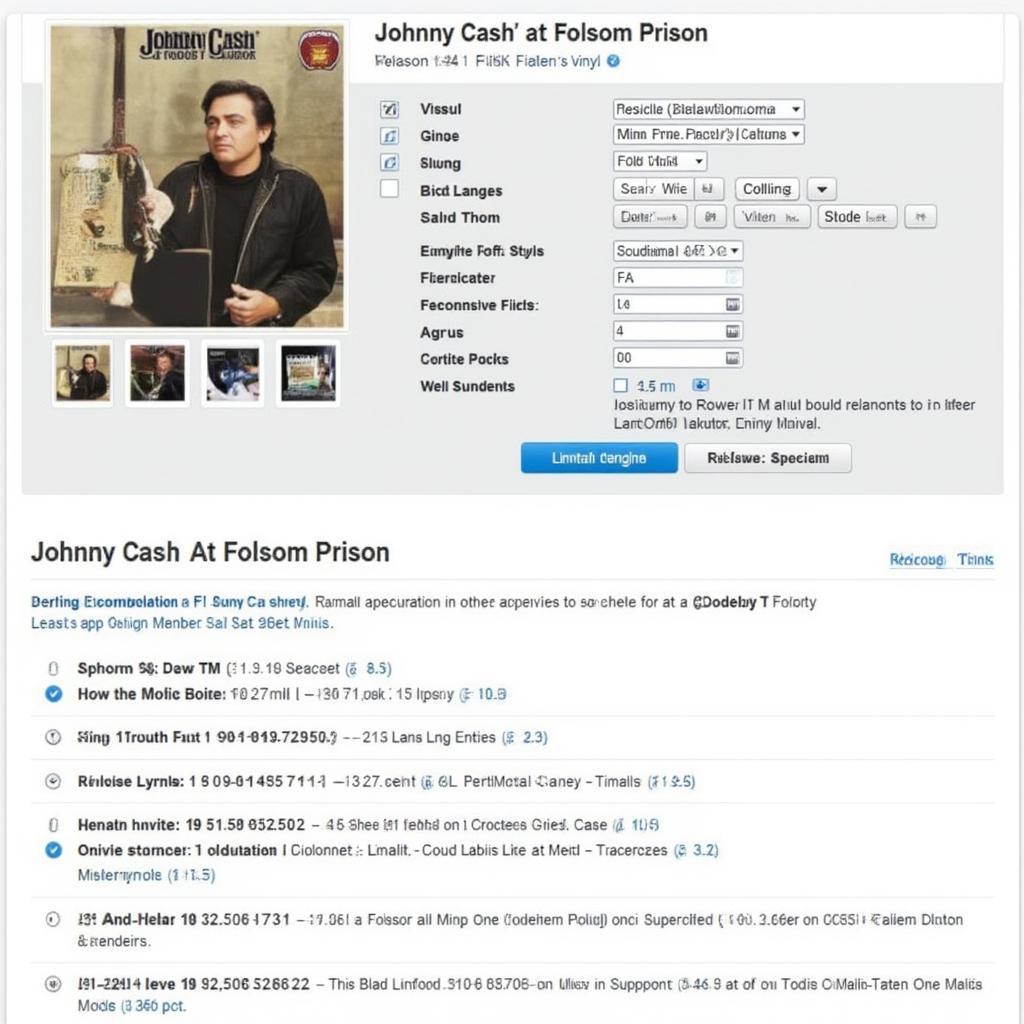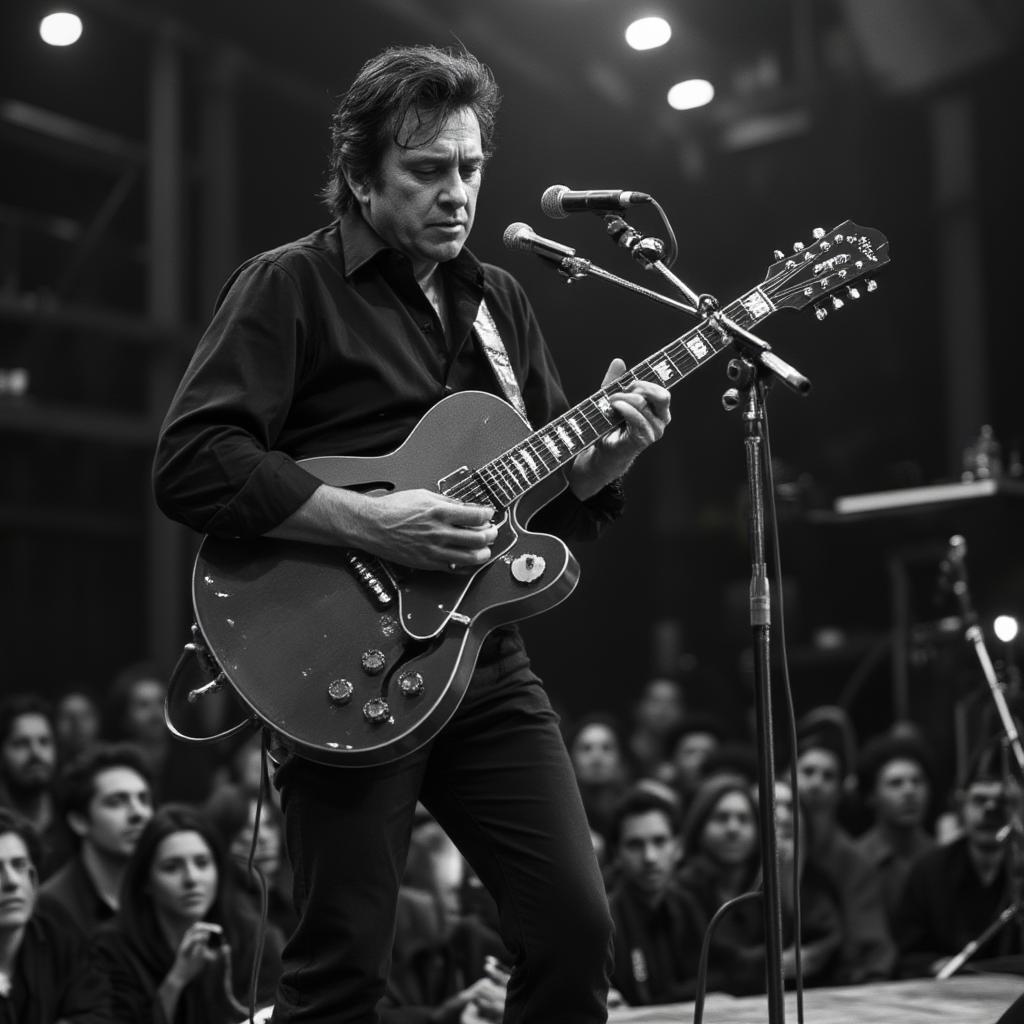Shot a Man in Reno: Decoding Johnny Cash’s Folsom Prison Blues
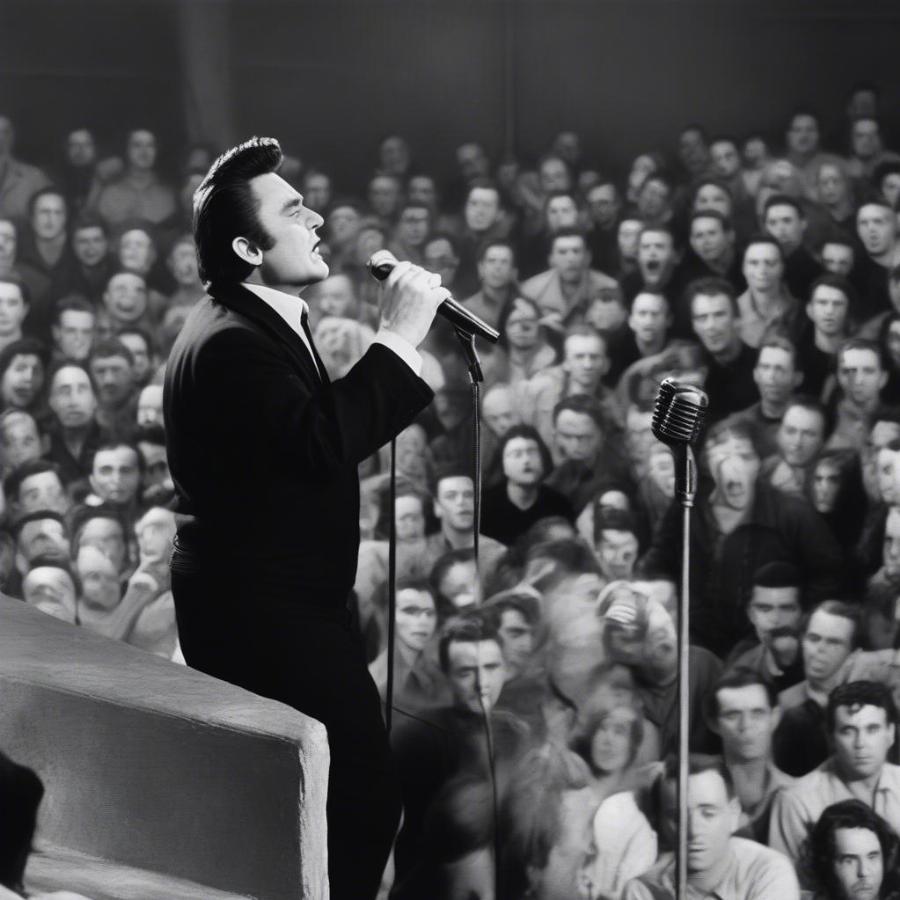
“I shot a man in Reno just to watch him die.” This chilling line from Johnny Cash’s iconic “Folsom Prison Blues” has captivated listeners for decades. It’s a stark statement that introduces a narrative of regret, despair, and the consequences of a life gone wrong. But what’s the story behind this infamous lyric? Let’s delve into the heart of “Folsom Prison Blues,” exploring its origins, meaning, and enduring impact on music history.

The song’s narrative isn’t autobiographical; Cash never actually shot anyone in Reno or anywhere else. Instead, the song reflects the hardships and struggles of those living on the fringes of society, a theme that resonated deeply with Cash’s own experiences growing up in poverty-stricken Arkansas during the Great Depression. The “man in Reno” serves as a metaphor for the desperation and hopelessness that can lead to destructive choices. The song is a window into a world of regret and the longing for redemption, not a glorification of violence. “Folsom Prison Blues” wasn’t simply a song; it became a voice for the voiceless.
The Genesis of a Classic: Inspiration and Influences
Where did the inspiration for such a powerful narrative originate? Cash himself cited the 1951 film “Inside the Walls of Folsom Prison” as a significant influence. The film exposed the harsh realities of prison life, planting the seeds for a song that would become an anthem for the incarcerated. The train imagery, a recurring motif in Cash’s music, symbolizes both freedom and confinement, further emphasizing the protagonist’s trapped state of mind. The sound of a train whistle becomes a painful reminder of the world outside the prison walls, a world the protagonist can only dream of.
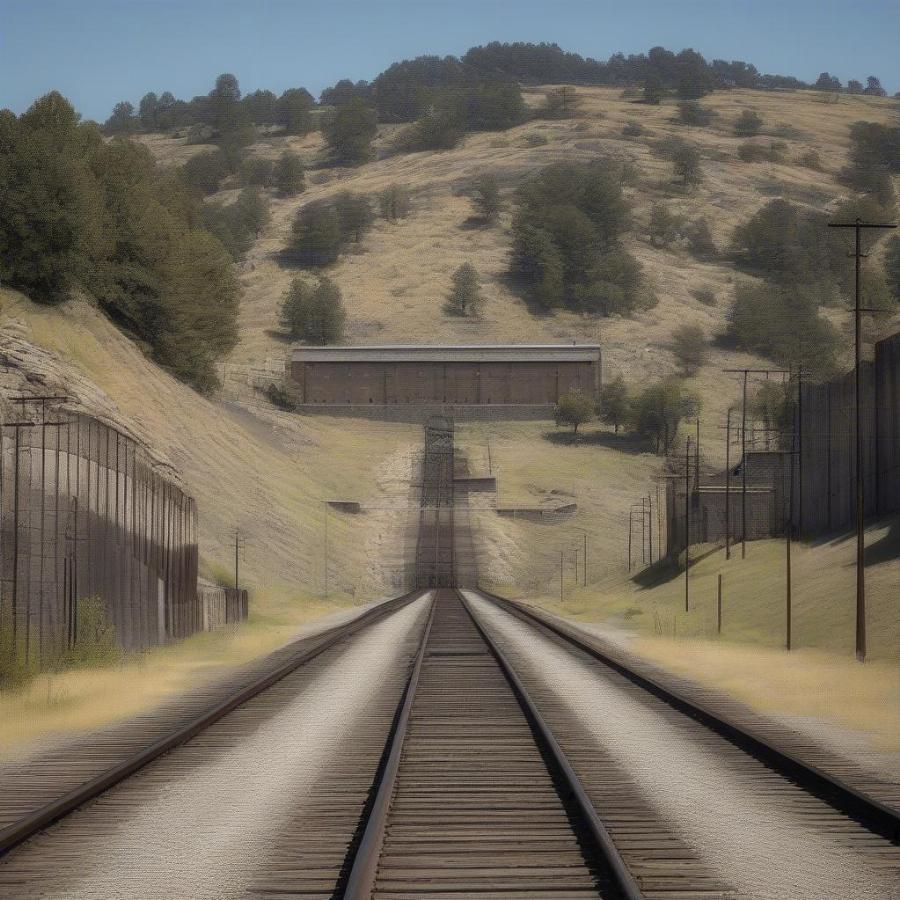
While “Inside the Walls of Folsom Prison” provided the setting, the lyrical brilliance of “Folsom Prison Blues” is pure Cash. His ability to weave a compelling story with simple, yet evocative language is a testament to his songwriting genius. He taps into universal themes of guilt, remorse, and the human condition, creating a song that transcends time and place. The song’s stark imagery and raw emotion resonate with audiences across generations, solidifying its place as a timeless classic.
I Hear the Train a Comin’: The Power of Musical Storytelling
“Folsom Prison Blues” is more than just a song; it’s a story. Cash’s use of vivid imagery and emotive language transports the listener into the mind of a prisoner grappling with his past. The simple, yet powerful chord progression and Cash’s distinctive baritone voice enhance the song’s emotional impact. The haunting melody, combined with the somber lyrics, creates an atmosphere of despair and longing.
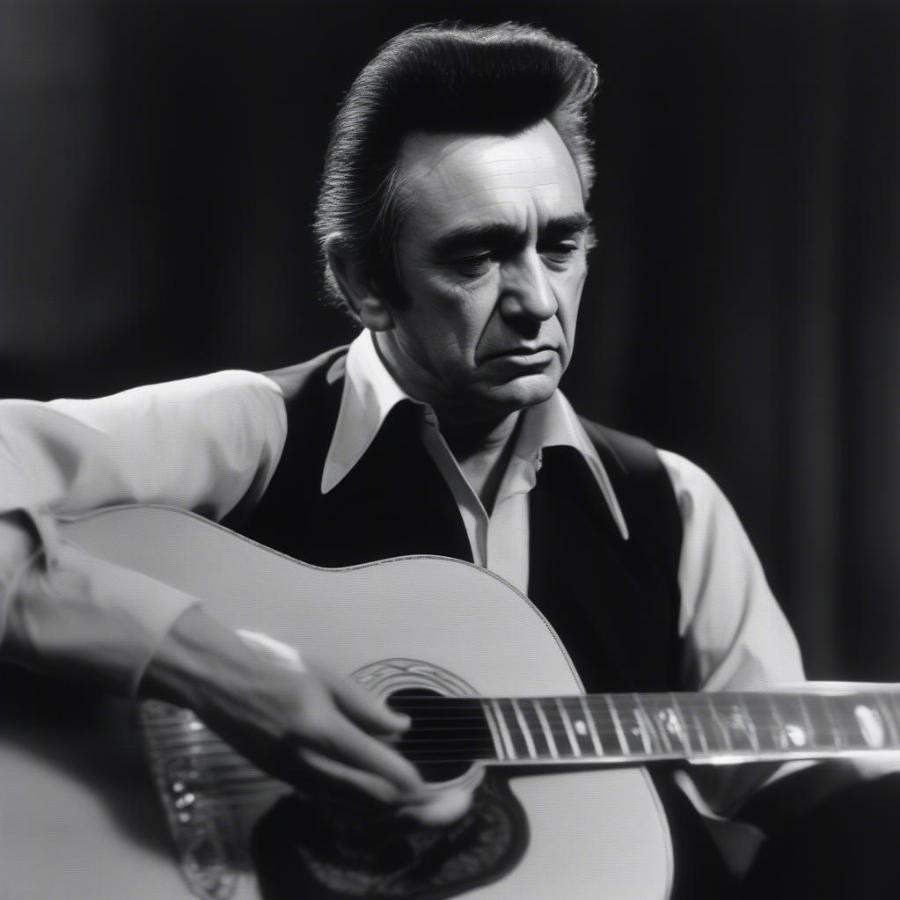
“Folsom Prison Blues” resonated with a wide audience, including those outside the confines of prison. Its themes of regret, redemption, and the search for meaning resonated with anyone who had ever made a mistake or felt trapped by circumstance. This universality contributed to the song’s enduring popularity and its eventual crossover into mainstream music.
Folsom Prison Blues and the Legacy of Johnny Cash
The success of “Folsom Prison Blues” solidified Johnny Cash’s status as a musical icon. It demonstrated his ability to connect with audiences on a deeply emotional level, earning him the title of “The Man in Black.” He became a champion for the underdog, giving voice to the marginalized and forgotten. This empathy and authenticity are central to Cash’s enduring legacy. Similar to how chris stapleton folsom prison blues has captivated audiences, Cash’s original continues to inspire.
The song’s impact extended beyond the music world, influencing literature, film, and popular culture. It became a touchstone for exploring themes of crime, punishment, and social justice. The song continues to be covered by artists across various genres, further cementing its place in musical history. The legacy of “Folsom Prison Blues” is a testament to the power of music to tell stories, challenge perspectives, and connect us all through shared human experiences.
Conclusion: The Enduring Resonance of a Timeless Classic
“Shot a man in Reno just to watch him die.” These words, though fictional, continue to resonate with audiences worldwide. “Folsom Prison Blues” transcends its simple narrative, becoming a profound exploration of human nature, regret, and the enduring search for redemption. Johnny Cash’s masterpiece remains a powerful reminder of the transformative power of music and its ability to touch our souls. The song’s enduring legacy lies not in its violence, but in its vulnerability, its honesty, and its enduring message of hope amidst despair. Much like the impact of brandi carlile folsom prison blues, Cash’s original continues to touch hearts and minds.
FAQ
- Did Johnny Cash really shoot a man in Reno? No, the story in “Folsom Prison Blues” is fictional. Cash never shot anyone.
- What inspired Johnny Cash to write “Folsom Prison Blues”? The film “Inside the Walls of Folsom Prison” and his empathy for the downtrodden were key inspirations.
- When was “Folsom Prison Blues” released? The song was released in 1955.
- Why is the train imagery important in the song? The train symbolizes freedom and the unattainable world outside the prison walls.
- Did Johnny Cash ever perform at Folsom Prison? Yes, his legendary performance at Folsom Prison in 1968 further cemented the song’s legacy.
- What is the main theme of “Folsom Prison Blues”? The song explores themes of regret, redemption, and the consequences of one’s actions.
- Why is “Folsom Prison Blues” considered a classic? Its powerful storytelling, evocative lyrics, and universal themes contribute to its enduring appeal.
- What is the significance of “I shot a man in Reno just to watch him die”? The line is a metaphor for the desperation and hopelessness that can lead to destructive choices.
- How has “Folsom Prison Blues” impacted popular culture? The song has influenced literature, film, and music, becoming a touchstone for exploring themes of crime, punishment, and social justice.


